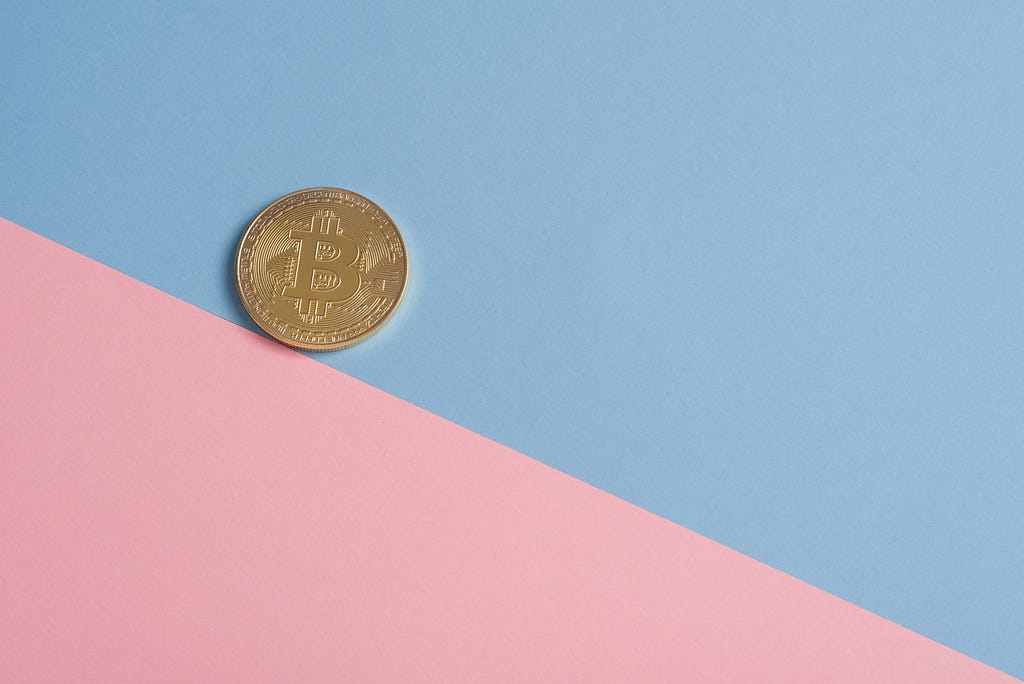Latest news about Bitcoin and all cryptocurrencies. Your daily crypto news habit.
Falling down the cryptocurrency rabbit hole was an unexpected turn in my life, and it’s reaped some unexpected benefits.
One of them is the wealth of knowledge I accidentally consumed about monetary policy and economics.
Regardless of the reasons you became interested in blockchain and cryptocurrency — that interest has more than likely spurred a lot of education.
An old trading mantra is, “Never buy what you don’t understand”. Assuming that most of you have taken this to heart would mean that most of you also have a great understanding of blockchain concepts.
What I’m getting at here is, we’ve created a large internet community of people who are extremely passionate about monetary theory and the concept of money- but we all tend to look to the future; the cutting edge.
“What else can we throw on the blockchain?!”
While some are trying to figure out how they can put their 2014 BMW on the blockchain to gain some liquidity to get out of their car loan, there aren’t many focused on where the most impact can be made: developing countries. There are applications for blockchain that can create a much larger impact than the majority of ICO’s that launched in the previous months. The only issue with these applications is they aren’t “sexy” ICO’s or potentially lucrative projects- so they’re often overlooked. Bad monetary systems lead to increased poverty, and while I don’t believe everyone in crypto should have a voice in shaping monetary systems, I do believe that we should be doing everything we can to increase awareness around current flaws in these systems.
We should push OUR community to focus on creating impactful solutions.
As the market has taken a downturn, and the crypto side of the internet has become, well, boring. I’ve started to look for more projects that interest me outside of the normal bounds of blockchain investment. Something that’s recently piqued my interest is an initiative that Bancor and a non-profit organization called Grassroots Economics is undertaking. Grassroots Economics has spent the last few years creating paper currency or vouchers to give out to small communities in Kenya.

In these small communities, there are plenty of goods and services created and cultivated within them, but there isn’t enough paper currency circulating in their population to actually pay for these goods and services. The circulating supply is too low, but these people aren’t in a place to lobby to their government, and even if they could- increasing the supply would likely only plunge the economy into more and more trouble.
Grassroots Economics sought to alleviate some of this monetary stagnancy by introducing a voucher system- but this came with a new set of issues. It was hard to track the flow of value throughout communities, and the local currencies could not be converted to one another with ease. This made it difficult for people in neighboring communities to exchange goods and services with one another: leaving their potential for growth limited. Additionally, without tracking the flow of money and measuring the actual size of an economy (in this case these small communities economies) it’s very difficult to gain meaningful insights in how to improve their situation.
Do these problems sound familiar?
They should, many of them can be alleviated through the use of blockchain. This is why Bancor stepped in; to allow the ability to track transactions and exchange these new, digital, community currencies with neighbors. Bancor stepped in to help Grassroots Economics out in their journey to empower impoverished communities in Kenya by introducing a blockchain-based network and “community tokens” that will be tradable using fiat or crypto on the Bancor platform.
Put simply; they digitized the pre-existing community currencies, put them on the blockchain and made them convertible for one another.
While many of the community outreach programs I see littering the crypto-sphere seem like desperate grabs for positive attention in a bear market, I see a lot of genuine value in what Bancor & Grassroots are doing for impoverished communities. Beyond the positive impact, I love how this initiative is also educating a new wave of crypto users on how to use cryptocurrency- expanding the market and its’ userbase from the ground up.
To clear the air…
I’m not writing this article to give Bancor a pat on the back for giving back. Giving back isn’t something we should seek credit for in the first place.
I’m writing in hopes that some of you bored crypto-enthusiasts out there will see this and understand that you can put your time and knowledge surrounding blockchain technology to good use (despite market conditions), and that even a little bit of good faith and effort can present immense positive change.
— — — — — — — —
Thanks for reading, if you’d like to chat with me or some like-minded crypt-nerds, check out my community Cosmic Trading. Click the link below to join!
Discord - Free voice and text chat for gamers
Can Blockchain Genuinely Help Impoverished Communities? was originally published in Hacker Noon on Medium, where people are continuing the conversation by highlighting and responding to this story.
Disclaimer
The views and opinions expressed in this article are solely those of the authors and do not reflect the views of Bitcoin Insider. Every investment and trading move involves risk - this is especially true for cryptocurrencies given their volatility. We strongly advise our readers to conduct their own research when making a decision.
